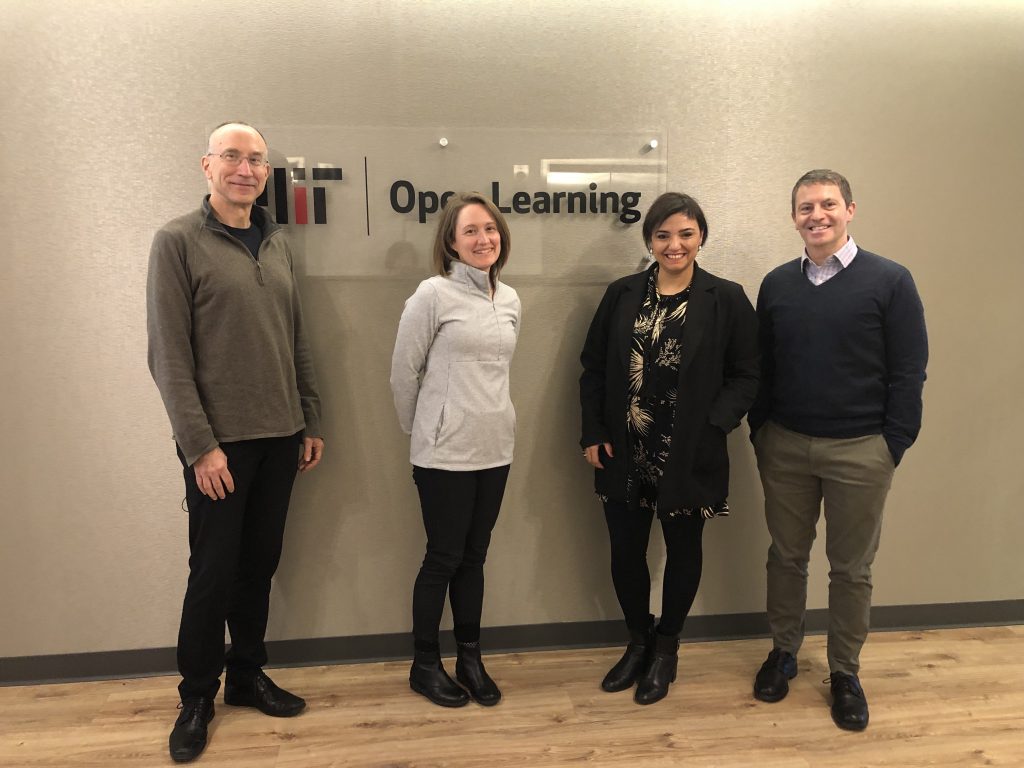On the banks of Charles River in Cambridge, Massachusetts you will find a stately university campus that is of some significance to the field of Open Education.
Of course, we are talking about the Massachusetts Institute of Technology (MIT) and the above mentioned significance is much more than “some.”
The 2001 launch of MIT OpenCourseWare (OCW) where course content of all MIT courses was shared openly under Creative Commons Licenses was a key catalyst in the worldwide spread of the Open Education movement. As of August 2022, over 7000 classroom lectures have been shared to the OCW YouTube Channel followed by over 4 million subscribers. Explore a few samples of OCW’s “Hidden Gems.”
The interest of other institutions to follow MIT’s groundbreaking move of openly sharing their course materials led to the 2008 creation of Open Courseware Consortium (OCWC), now known as Open Education Global (that’s us!). That connection is visible in the right side of the footer of the MIT OCW web site. MIT is a long time sustaining member of OEGlobal and we appreciate that this connection has been sustained to the present.
Thus, in December 2022 when new OEGlobal Executive Director Andreiá Inamorato had meetings planned in Boston, she had good reason to pay a visit to that Cambridge campus of what we might consider OEG “Member Zero”.
Andreia reports a very constructive meeting with three representatives of the 164 member team from MIT Open Learning.

As a recognized leader of innovation in many disciplines, MIT has especially demonstrated continued investment in ‘Open’ over the years, by placing it at the heart of major initiatives that reach far beyond. MIT Open Learning is the hub for several educational initiatives, such as MIT Open CourseWare, MITx, MicroMasters, and MIT Open Learning Library.
Some of MIT Open Learning’s innovative programs live under the MIT Open platform, including Chalk Radio, an OpenCourseWare podcast about inspired teaching, the Lemelson-MIT Program Let’s Invent, the MIT Alumnai for Climate Action platform, as well as MIT Bootcamp, Teach Remote to support remote teaching, and Justin Reich’s investigation into the art and craft of teaching through Teach Lab, plus much more.
One example of an OEGlobal/MIT connection already established is via OEGlobal’s Community College Consortium for OER (CCCOER) in a shared goal to advocate for and support the development of inclusive, antiracist, and diverse OER to enhance educational equity. Recognizing the leadership of community colleges in equitable access to education, the MIT team has reached out to CCCOER to identify community colleges interested in adapting and enhancing Open Educational Resources (OER) from OCW to use with their students. CCCOER co-leads the Open for Antiracism Program, a faculty development program aiming to transform teaching and learning to be antiracist through the use of OER and open pedagogy.
In her visit with the MIT Open Learning team, Andreia reports that a number of new ideas for MIT/OEGlobal collaboration were discussed. You can expect to learn more in the coming months through our communication channels. Plus we are scheduling an upcoming OEG Voices podcast where we can learn more about the current projects and interests of MIT Open Learning and how to create mutually beneficial opportunities with the OEGlobal community.
We expect many readers have experienced the value of MIT’s contributions to Open Education. Do you want to learn more about or engage with MIT Open Learning initiatives? Share your perspectives and ask questions with ongoing conversations in the OEG Connect community.
Featured Image: Massachusetts Institute of Technology, located in Cambridge, skyline across the Charles River is Boston, Mass. public domain Tichnor Brothers postcard image from Wikimedia Commons.
Share your MIT experiences …
Click on reply to add your experience with MIT or any observations you care to share!